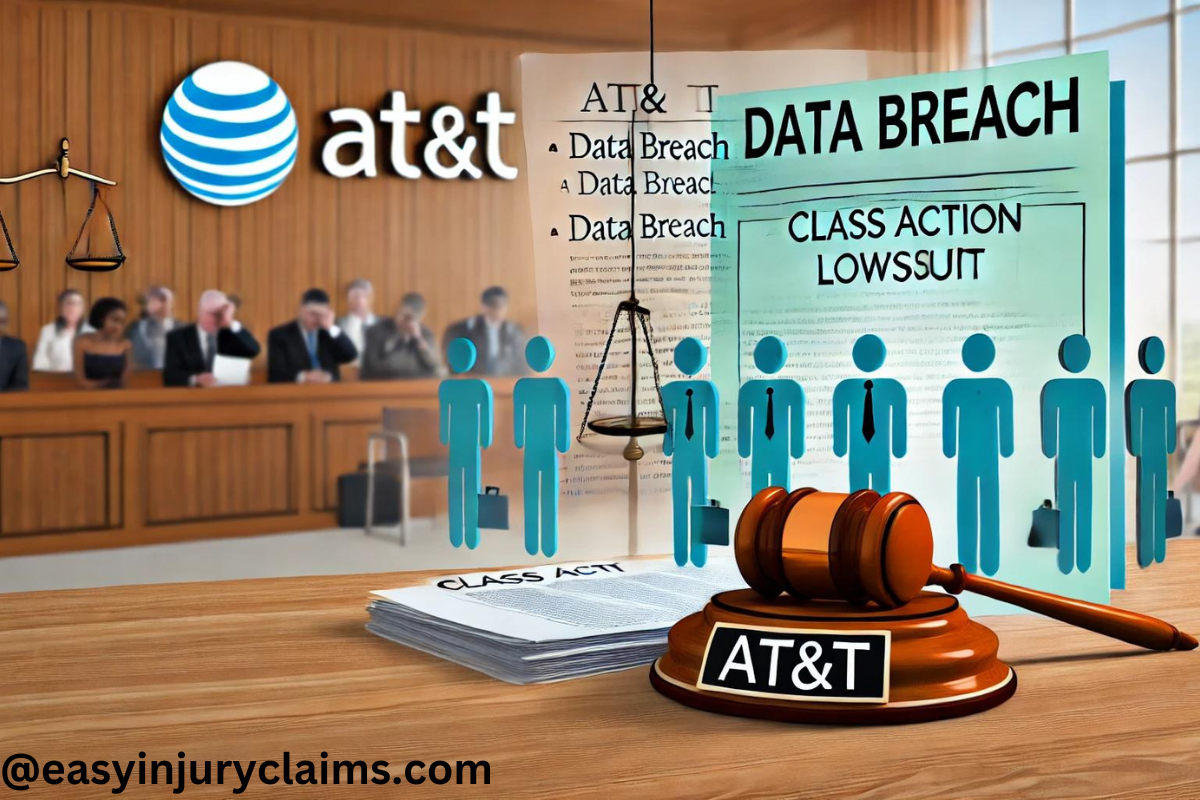Overview of the AT&T Data Breach
The AT&T data breach incident happened when a hacker got access to the company’s systems and stole the personal information of about 73 million current and former customers. This information included names, Social Security numbers, birthdates, and other sensitive details. The hacker released some data at the time of the breach, but later leaked more, putting many AT&T customers at risk. Customers affected by the breach are now part of a class action lawsuit against AT&T for failing to protect their information properly.
Timeline of Events
The AT&T data breach was discovered in April 2024 when the company identified unauthorized access to its systems. After realizing the breach, AT&T took about a month to notify its affected customers, which happened in May 2024. This delay in notification caused significant concern among customers, leading to criticism and controversy. Many customers felt that AT&T should have informed them sooner, especially given the sensitive nature of the compromised data. The delay and the handling of the breach have been central issues in the class action lawsuit filed against AT&T.
Details of the Class Action Lawsuit
The class action lawsuit against AT&T involves several key plaintiffs who are representing the millions of customers affected by the data breach. These plaintiffs allege that AT&T failed to implement adequate security measures to protect their personal information, leading to the breach. They accuse the company of negligence and breach of contract, arguing that AT&T had a duty to safeguard the data under various legal obligations.
The plaintiffs also claim that AT&T violated state laws, including California’s Unfair Competition Law, by not taking proper steps to prevent the breach. They are seeking monetary damages for the harm caused, including potential identity theft and financial loss. Additionally, the lawsuit demands injunctive relief to ensure that AT&T improves its data security practices to prevent future incidents.
Impacts on Consumers
The AT&T data breach has exposed millions of customers to serious risks like identity theft and financial fraud. When personal information such as Social Security numbers and birthdates are leaked, criminals can use this data to steal identities, open fraudulent accounts, or make unauthorized transactions.
In the class action lawsuit, several individuals have shared their experiences. For instance, some customers found out their data had been leaked on the dark web, leading to a heightened risk of identity theft. Others received fraudulent charges on their credit cards shortly after the breach. These real-life examples highlight the immediate impact on the affected consumers.
The long-term consequences for those impacted by the breach could be severe. Victims of identity theft may face ongoing challenges, such as damage to their credit scores, difficulties in obtaining loans, and the need to constantly monitor their financial accounts. The breach also erodes trust in AT&T and raises concerns about how personal data is handled by large corporations.
AT&T’s Response and Legal Defense
After the data breach was discovered, AT&T took several steps to mitigate the damage. The company strengthened its cybersecurity measures and implemented additional safeguards to prevent future breaches. They also offered free credit monitoring services to affected customers to help them monitor for signs of identity theft.
In public statements, AT&T acknowledged the breach and expressed regret over the incident. The company emphasized its commitment to protecting customer data and promised to improve its security practices.
Legally, AT&T is defending itself against the class action lawsuit by arguing that they acted quickly to address the breach once it was discovered. The company is also questioning the plaintiffs’ claims of negligence and breach of contract, asserting that they had reasonable security measures in place at the time of the attack. AT&T’s legal strategy involves challenging the scope of the claims and seeking to limit the potential damages they might owe.
This response is part of the ongoing legal battle, and AT&T continues to navigate the complex issues surrounding the breach and the resulting lawsuit.
Similar Past Incidents
AT&T has faced data breaches in the past, as have other major telecommunications companies. One notable incident occurred in 2015 when AT&T had to pay a settlement after a breach exposed the personal information of nearly 280,000 customers. That breach involved unauthorized access by employees who sold customer data to third parties.
Comparing the current breach to past incidents, the 2024 AT&T data breach is much larger in scale, affecting about 73 million customers. This makes it one of the most severe breaches in the telecommunications industry in recent years. The impact is more widespread, with a significant amount of highly sensitive information being compromised. Unlike earlier breaches that may have involved smaller-scale data theft or insider threats, this incident involves a large-scale cyberattack that has far-reaching consequences for millions of customers.
This breach also stands out due to the legal actions it has prompted, including multiple class action lawsuits, and the extensive media coverage surrounding it. This has put a greater spotlight on AT&T’s data security practices and their implications for customer trust and corporate responsibility.
Future Implications
The class action lawsuit against AT&T could lead to several possible outcomes. If the plaintiffs are successful, AT&T might face significant financial penalties, including monetary damages to compensate the affected customers. The company could also be required to implement stronger data security measures as part of the legal resolution. A settlement could be reached before the case goes to trial, which is common in large-scale data breach cases.
This case might also have broader implications for data protection regulations. The lawsuit highlights the need for stricter data security standards and better enforcement of existing laws. It could prompt lawmakers to push for new regulations that require companies to adopt more rigorous cybersecurity practices and ensure faster notification to customers in the event of a breach.
For the telecommunications industry, this case serves as a warning about the severe consequences of data breaches. It may lead other companies to reevaluate their own cybersecurity practices to avoid similar legal and financial risks. The increased public scrutiny could also drive changes in how telecom companies handle and protect customer data, potentially leading to industry-wide reforms aimed at enhancing customer trust and preventing future breaches.
How to Join the Class Action
If you believe you were affected by the AT&T data breach, you can take specific steps to determine if you’re eligible to join the class action lawsuit. Here’s how:
Determine if You Are Affected:
-
- Check any communication from AT&T regarding the breach. If you received a notification from AT&T informing you that your data was compromised, you are likely eligible to join the lawsuit.
- Review any unusual activity in your financial accounts or signs of identity theft since the breach occurred.
Steps to Join the Class Action Lawsuit:
-
- Contact a law firm or legal service handling the AT&T class action. Many firms offer free consultations to help you understand your rights and the process for joining the lawsuit.
- You can also visit websites like Top Class Actions or ClassAction.org, which often provide forms or links to join ongoing class actions. These resources can guide you through the process and connect you with attorneys involved in the case.
Resources for Legal Assistance and Further Information:
-
- If you need legal assistance, consider reaching out to consumer protection organizations or legal aid services that specialize in data breaches. They can provide guidance and help you find a lawyer if needed.
- For more detailed information about the lawsuit, including how it might progress and what you can expect, keep an eye on updates from trusted legal news websites like Law.com or specialized consumer rights platforms.
By taking these steps, you can ensure that your rights are protected and that you are part of the efforts to hold AT&T accountable for the data breach.
Legal Experts’ Opinions
Cybersecurity and legal experts have weighed in on the AT&T data breach and the resulting class action lawsuit. Many agree that the scale of the breach and the sensitive nature of the compromised data make this case significant not just for AT&T but for the entire telecommunications industry.
Cybersecurity experts have pointed out that AT&T’s failure to prevent the breach could be seen as a violation of basic security principles, such as implementing multi-factor authentication and adhering to updated cybersecurity guidelines. They suggest that AT&T’s data handling practices may not have been robust enough, which could weaken the company’s defense in court.
Legal experts predict that the lawsuit could lead to a substantial settlement, given the number of individuals affected and the severity of the data exposure. They also note that AT&T may choose to settle the case rather than risk a lengthy trial, which could further damage its reputation and result in even higher penalties. Some legal analysts believe this case might set a precedent for future data breach lawsuits, potentially leading to stricter regulations and higher expectations for corporate data protection.
Conclusion
The AT&T data breach has sparked a significant class action lawsuit that continues to unfold. With millions of customers affected, this legal battle is centered around AT&T’s alleged failure to protect sensitive personal data, resulting in claims of negligence, breach of contract, and violations of state laws.
This case underscores the critical importance of data security in today’s digital age. As more personal information is stored online, companies must prioritize robust cybersecurity measures to protect consumer rights. The AT&T lawsuit highlights the potential consequences for companies that fail to safeguard their customers’ data, serving as a reminder of the vital need for stringent security practices and quick, transparent communication when breaches occur.
The outcome of this lawsuit could have far-reaching implications, not just for AT&T but for the broader telecommunications industry and beyond, potentially shaping future data protection regulations and corporate practices.
FAQs
1. What is the AT&T data breach class action lawsuit about?
The lawsuit alleges that AT&T failed to protect customer data, leading to a breach that exposed sensitive information.
2. Who is eligible to join the class action lawsuit?
AT&T customers affected by the data breach, whose personal information was compromised, may be eligible to join the lawsuit.
3. What compensation can I expect from the lawsuit?
Potential compensation could include monetary damages, reimbursement for losses, and credit monitoring services, depending on the court’s decision.
4. How do I join the AT&T class action lawsuit?
To join, you typically need to fill out a claim form and provide proof of your connection to the data breach. Check the official lawsuit website for details.
5. When will the lawsuit be resolved?
Class action lawsuits can take years to resolve, depending on the complexity of the case and court proceedings. Updates are usually provided by the legal team or on the lawsuit’s official site.











Got a Questions?
Find us on Socials or Contact us and we’ll get back to you as soon as possible.